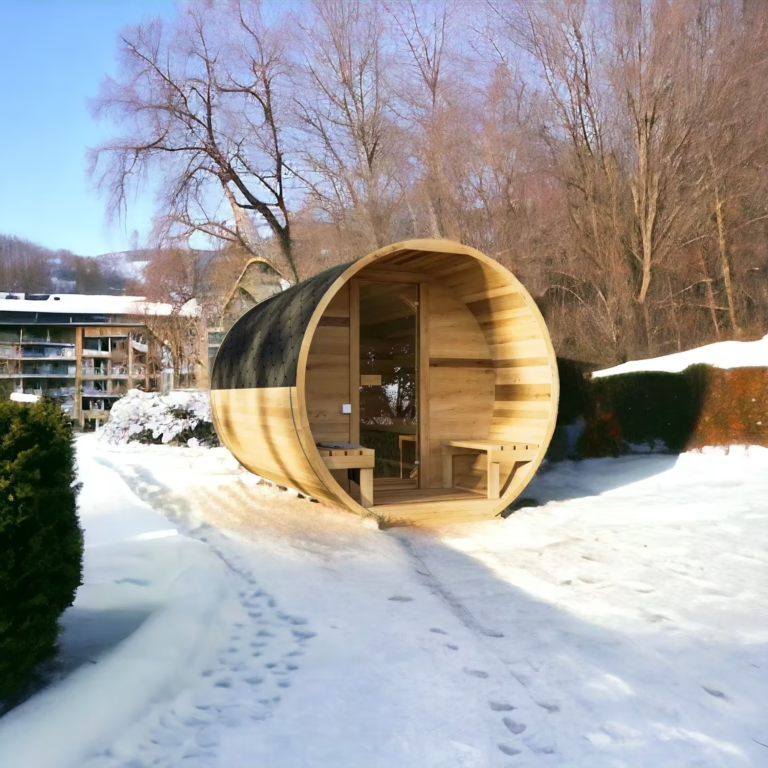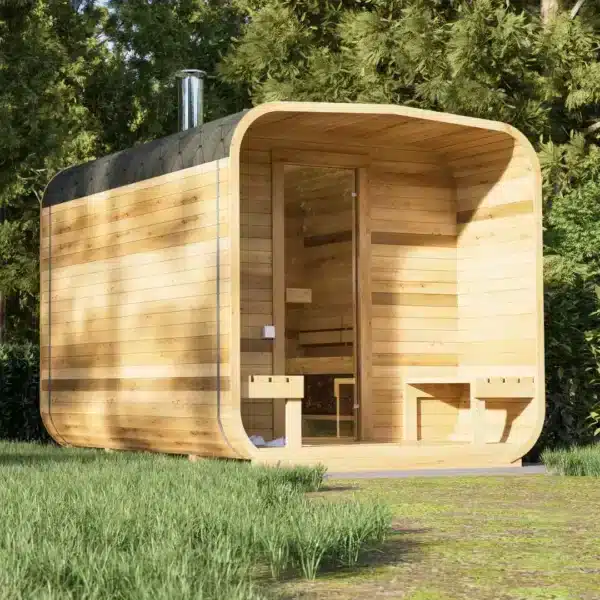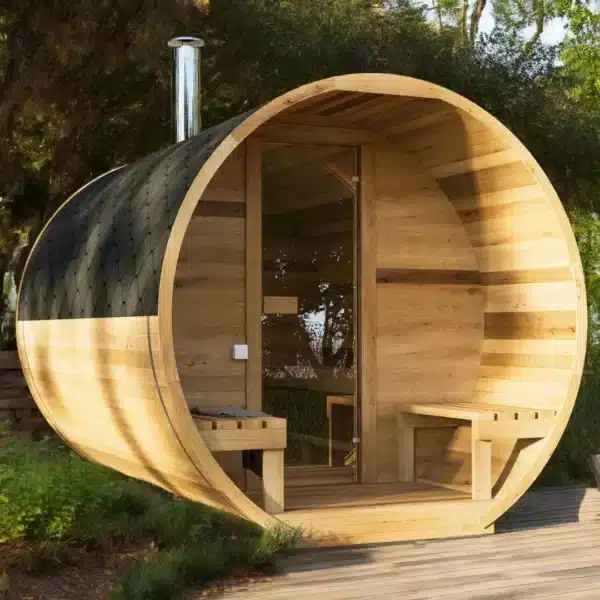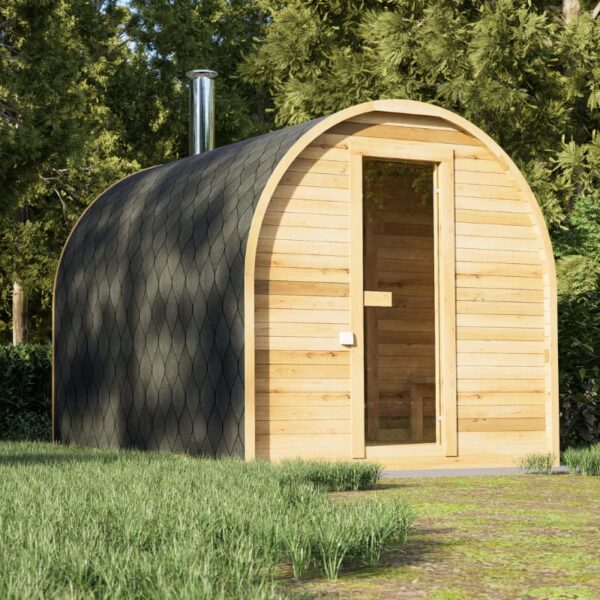No products in the cart.

A sauna is a source of relaxation in any season, but there is something extra special about a sauna session in winter. The cold outside combined with the pleasant warmth inside offers a unique experience that can benefit your well-being and health. But is it actually possible to use an outdoor sauna in winter? And if so, what are the benefits and what should you pay attention to? In this article, we answer all these questions and more.
Using a sauna is proven to be good for your health. In winter, a sauna session can boost your immune system, improve circulation and reduce muscle pain. In addition, the sauna helps detoxify your body through sweating, which tends to be less prevalent especially in the cold months.
Nothing beats the feeling of total relaxation in a warm sauna, especially when it's cold and inclement outside. The heat causes your muscles to relax, which lowers your stress levels. Winter can often be a stressful time, so a moment to yourself in a sauna is ideal.
To take full advantage of an outdoor sauna in winter, good insulation is essential. This prevents heat loss and ensures that the sauna heats up quickly and maintains a constant temperature. Modern outdoor saunas are often equipped with high-quality insulation materials.
A well-insulated sauna uses less energy, which is especially important in winter. During the colder months, a sauna's energy consumption can increase, especially if the outside temperature is very low. By investing in insulation, you end up saving on energy costs.
This sauna is heated by a heater and reaches temperatures between 70°C and 100°C. This type of sauna is ideal for lovers of intense heat and is excellent for winter use.
Instead of heating the air, an infrared sauna heats your body directly. This makes it less intense than a Finnish sauna, but it offers therapeutic benefits, such as pain relief and improved blood circulation.
This traditional sauna operates on wood and offers an authentic sauna experience. The smell of burning wood and the sound of the crackling fire contribute to a unique atmosphere, especially in winter.
Check the temperature in the sauna regularly to avoid overheating. An outdoor sauna in winter can cool more quickly, so it is important to regulate the heater properly.
Make sure access to the sauna is safe, especially if there is snow or ice. Keep the walkway to the sauna clear of snow and ice, and provide good lighting.
Bring warm clothes for after the sauna session and provide a robe, towels, and possibly slippers to keep your feet warm. Warm clothing helps you better tolerate the contrast between the sauna and the cold outside.
A sauna session causes a lot of fluid loss, so make sure you drink enough, both before and after the sauna session. It is also important to rest and cool down between sessions.
There are many misconceptions about using a sauna in winter. For example, some think it is unhealthy to go from heat to extreme cold, when in fact it can have health benefits. The body gets used to the changing temperatures and becomes stronger from them.
An outdoor sauna offers more of a connection to nature and allows you to cool off in the fresh air after your sauna session. In addition, an outdoor sauna does not take up space in your home.
Protect your sauna from rain, snow and ice by installing a cover. This also helps extend the life of the sauna.
Check the insulation of your sauna and make improvements if necessary. A well-insulated sauna is more resistant to cold temperatures and saves energy.
Research shows that using a sauna, especially when combined with cold temperatures, offers health benefits such as improved heart function and increased resistance to disease.
Take time to cool off after each session and enjoy being outside. Taking several short sessions instead of one long session keeps the experience refreshing.
Yes, cold water baths are a great way to complete the sauna experience. The contrast between hot and cold stimulates circulation and makes you feel extra energized.
Many sauna enthusiasts describe their winter sauna sessions as invigorating and soothing. The cold outside provides an extra dimension you don't experience in the summer.
An outdoor sauna in winter offers numerous health and wellness benefits. By taking the right precautions, you can fully enjoy your sauna experience even when temperatures drop. Whether you choose a traditional sauna or an infrared sauna, winter is a perfect season to relax and enjoy the warmth.






